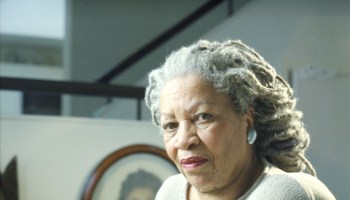On April 20, 1989, the body of 28-year-old Trisha Meili was left for dead in New York City’s Central Park after she was brutally beaten and raped. Not too long after the attack, five young men — Anton McCray (15); Kevin Richardson (14); Yusef Salaam (15); Raymond Santana (14); and Korey Wise (16) — were detained and questioned as suspects of the crime. After hours of reported psychological torment, coercion and aggressive interrogation, the young men ultimately implicated themselves and one another as being participants in the crime.
Must Read: #YourLifeMatters Hangout: How Does Colorism Affect Your Self Esteem? [Join The Conversation!
It was later documented in the PBS Film, “The Central Park Five” that the civil rights of these young men were violated due to corruption and coercion by the New York Police Department and that another man, serial rapist, Matias Reyes, ended up confessing to the crime.
In 2002, based upon the confession and supporting DNA test results implicating Reyes as the true assailant, a judge vacated the original convictions of the Central Park Five. A year later, the men, who had already served their sentences, filed civil lawsuits against the City of New York and the police offices and prosecutors who worked on their convictions.
It was reported in November 2013, that newly elected Mayor Bill DeBlasio intended on settling the case with the Central Park Five. The settlement will reportedly cost the city millions of dollars, much to the protest of city attorneys, prosecutors and detectives. This will not be the first time the city has settled a case against it for a wrongful conviction.
WHAT DOES THIS MEAN?
Though Mayor DeBlasio has recognized the severe injustice executed within the prosecution and ultimate conviction of the Central Park Five, via his decision to seek a settlement in the lawsuit against the city of New York; any wronged party may bring a civil lawsuit for wrongful conviction by proving three elements in the case. Any defendants who were wrongfully convicted must prove:
- Convicted of a crime. The defendant must have been convicted of a criminal offense. This means any offense for which a person could be imprisoned. (A juvenile offense isn’t typically considered a criminal offense.)
- Served time. The defendant must have actually served time in a state prison. Time spent in a local jail doesn’t qualify.
- Actually innocent. The defendant must provide evidence that he or she is actually innocent. Though it’s often not available, DNA evidence is usually the best way to prove someone else committed the crime.
The government may be able to provide a defense to the lawsuit, providing that the wrongfully convicted person is not entitled to compensation, if it can prove that the defendant contributed to their own conviction. This includes, but is not limited to, a defendant choosing to plead guilty despite being innocent, hiding or destroying evidence, attempting to prevent a witness from testifying and/or covering up someone else’s guilt. City attorneys for New York previously argued that the prosecutors and the detectives in the case had “probable cause” to arrest and charge the Central Park Five, and the judge in their case found that the men’s statements were not coerced, however, there is no getting around the sheer injustice served upon these young men.
“This tragedy reminds us how much we struggle to come to terms with America’s original sin, which is race,” said filmmaker Ken Burns. “One only need to look at the history books to understand that, unfortunately, the Central Park Five are not unique in American history.”
HOW DOES THIS AFFECT YOU?
Unfortunately, wrongful convictions within our nation are nothing new. We have witnessed many individuals being exonerated for crimes they did not commit, despite giving up many years of their lives behind bars. The unjust time served severely hinders, if not stops altogether, the earning capacity of an individual and their ability to provide for their families and seek goals they may have had before an overzealous prosecutor got their hands on a case. Many times, most individuals wrongfully committed of a crime lack the resources to appeal their convictions and/or lack the strength to seek a fight after being released from prison. There are numerous volunteer organizations, such as the Innocence Project, that work with those currently imprisoned and also those who have ultimately been released to seek justice in the face of a wrongful conviction. If you or a loved one feels that justice has not been properly adjudicated in your case, by all means, do not give up your fight. Contact an attorney or organization that specializes in wrongful conviction civil lawsuits to seek compensation for time served.
Rashida Maples, Esq. is Founder and Managing Partner of J. Maples & Associates (www.jmaplesandassociates.com). She has practiced Entertainment, Real Estate and Small Business Law for 9 years, handling both transactional and litigation matters. Her clients include R&B Artists Bilal and Olivia, NFL Superstar Ray Lewis, Fashion Powerhouse Harlem’s Fashion Row and Hirschfeld Properties, LLC.
Related Stories:
SHE’S THE LAW: Be Careful, The IRS Can No Longer Legally Regulate Tax Return Preparer Fraud
SHE’S THE LAW: How A Drunken Teen Killed 4 People & Got Off For Being Rich
Check Out This Gallery Of Black Women In History You Should Know:






















